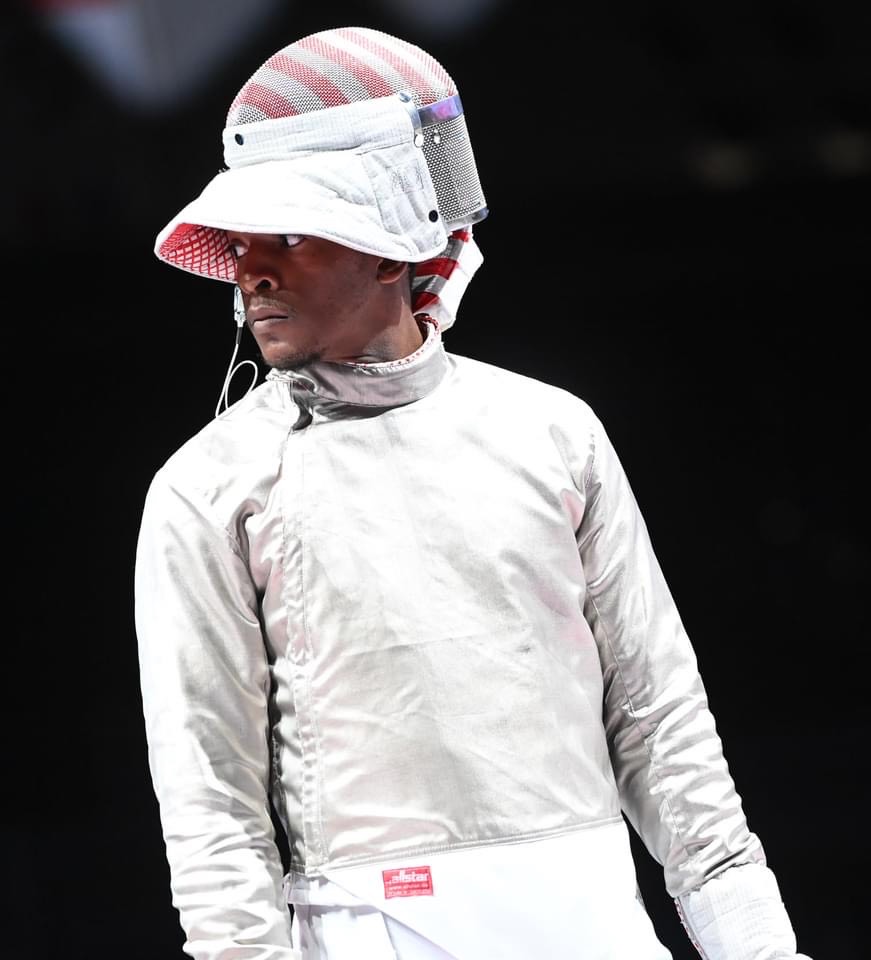Communications and media studies major Khalil Thompson spent this summer representing the United States in the Tokyo 2020 Olympic Games. At nine years old, he had his first taste of fencing through Saturday morning classes to which his mother sent him, not realizing this would become a defining moment for what he was soon to become.
The first time he watched high-level fencing was the Beijing 2008 Olympic Games, two years after being introduced to the sport, but the inspiration to get more serious with fencing did not come until he was thirteen and watched the Senior Men’s Saber World Cup in Brooklyn, New York face-to-face. “I was fascinated by the different styles of fencing,” Thompson said. “Additionally, I was happy to see two other black men go far in the tournament.” Daryl Homer, a now three-time Olympic fencer and teammate of Thompson, finished eighth, and Bolade Apithy of France finished second. Thompson used this as encouragement to continue making progress; “seeing other black fencers doing well on a high level” inspired him to keep fencing.
Normally, the qualification process of being able to fence in the Olympics takes about a year, but due to the pandemic, an extra year was added on. The May North American Cup took place in Richmond, and it was the last tournament that counted to be on the United States team; it was just under three months before the Olympic Games took place. “I knew I had to place higher than Grant Williams and Jonah Shainberhg, the fifth and sixth ranked fencers in the country, respectively,” Thompson said. “Jonah lost in the quarterfinals and was out of the running. I had to fence Grant in the semifinals and won the close match 15-13.”

Caught up in the moment, Thompson “actually fell to the ground the moment [he] won the match.” He was told later on that Jonah lost his match and fell into disbelief. “I felt relieved that I had finally fulfilled a lifelong dream of qualifying for the Olympics,” he revealed.
“I told some of my best friends [that I qualified] first. I waited until the competition was over and when I told them, they were all super excited,” not realizing that they had been following the results of the tournament closely all day and knew before Thompson himself.
While this has been extremely invigorating for him and his loved ones, it wasn’t always a smooth ride. He stated that an earlier bump in the road was trying to qualify for a national team. “I had missed the Cadet & Junior national teams. It’s very hard to get to the next level of competition; you’re no longer fencing people your age. I’ve fenced people 20 years old and 40 years old on the same day.”
Another deterrent occurred after he began attending college. “I originally started at Penn State University but took a leave of absence when I was diagnosed with severe depression and anxiety,” Thompson explained. “I felt that it was the end of the road for me,” feeling ready to quit fencing and go back to square one with a new life.
Fortunately, his mother, sister and family at the Peter Westbrook Foundation understood how much fencing and other aspects of his life actually meant to him; they made sure that he never got to the point of quitting. His family helped him through the break, eventually bringing his confidence back up to start school again. To suggest a change of pace, his mother brought up the idea of going to NJIT instead, and he realized that it was the best place for him.
Since then, he has not had too much time in a normal college experience, with his first year being interrupted by COVID-19. “I had to regain my footing. I took a light course load in Fall 2019 and wasn’t in school at the beginning of 2020,” he mentioned, “so coming back to school only online was a difficult adjustment, [but my] experience was better than I expected. I’ve made some friends at school and have become comfortable with being in school again.”
“There was a time I stopped fencing and focused more on school until I had to get ready to compete again,” Thompson said. “Now that the Olympic journey is over, I can put more focus into my studies and end my long undergraduate tenure.” The road has been long and difficult for him, but it all seemed worth it to fulfil his Olympic dream.

































